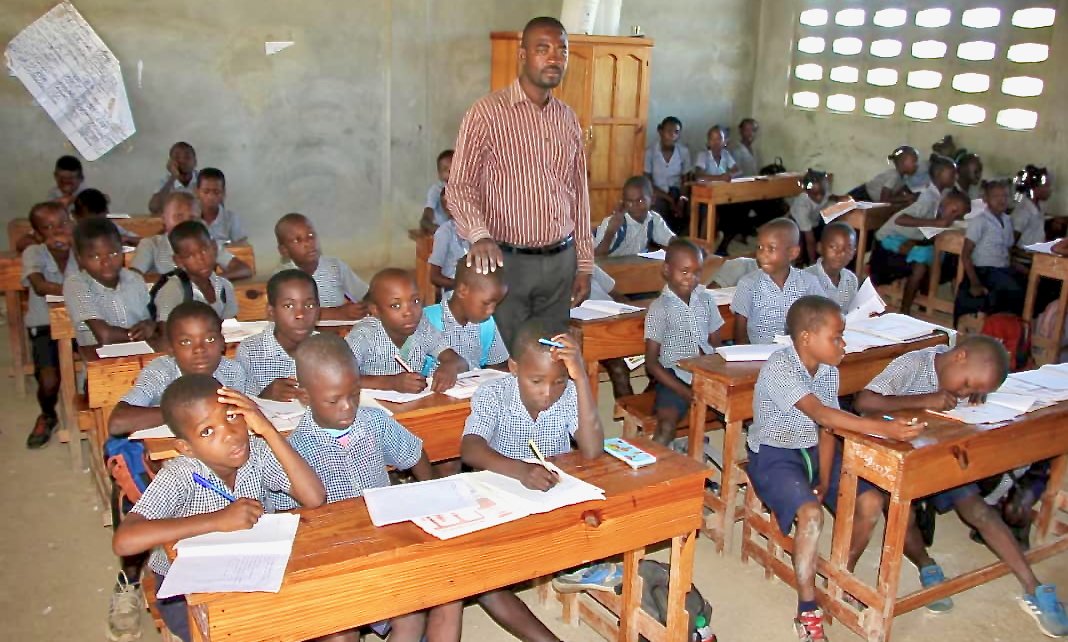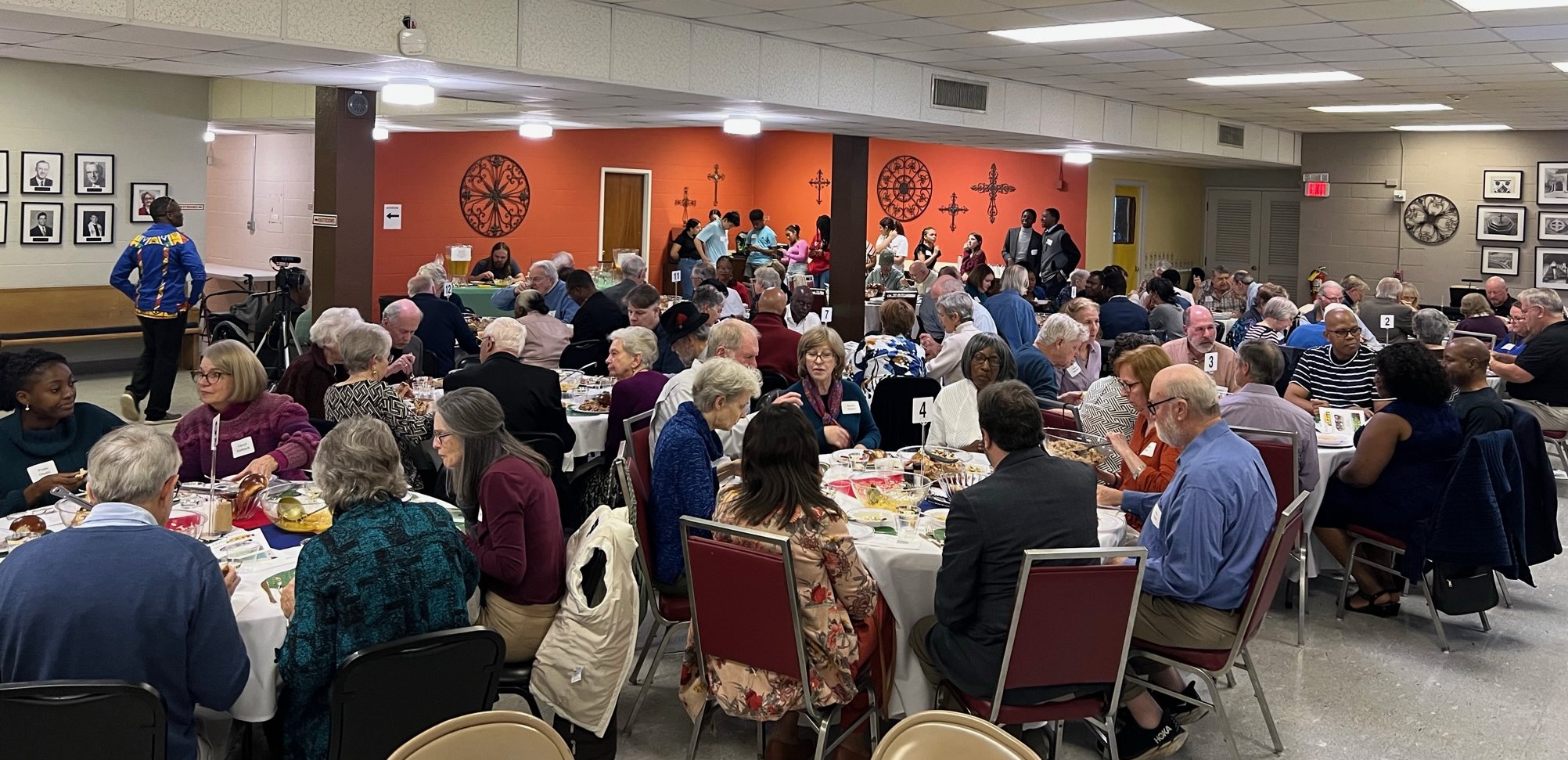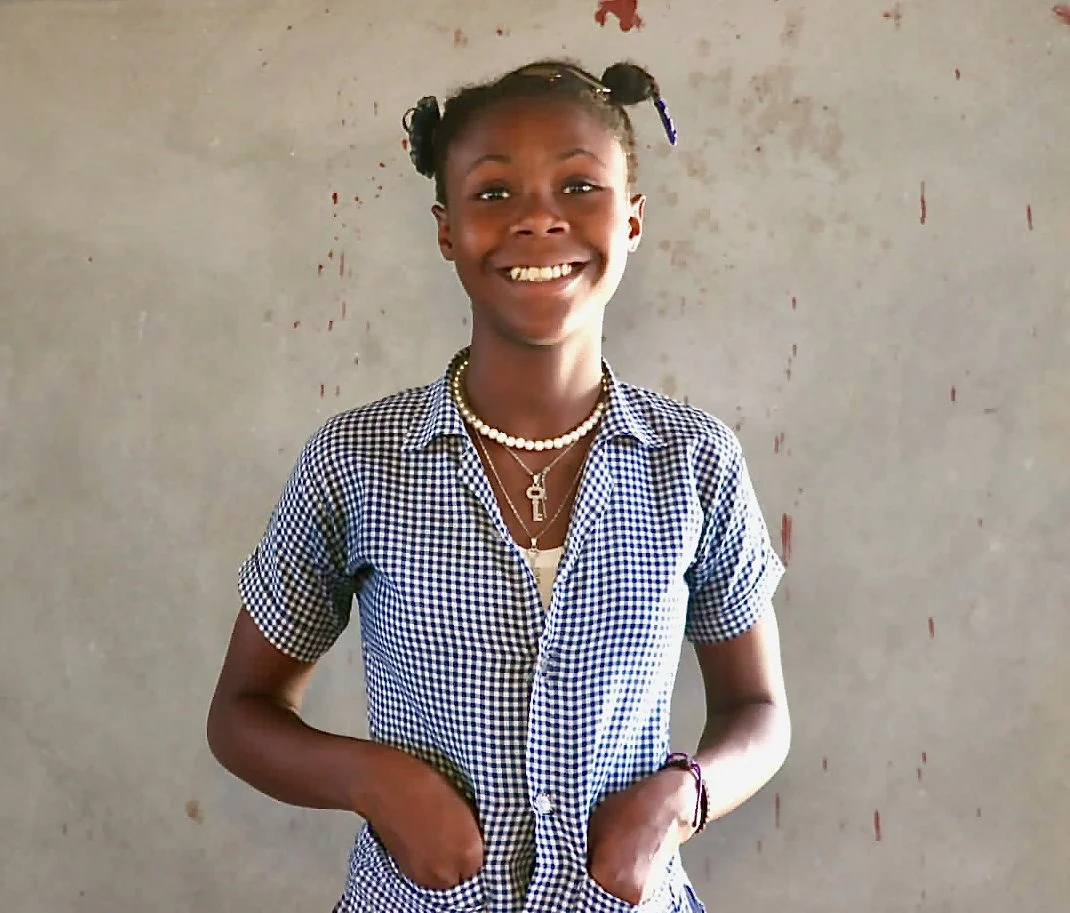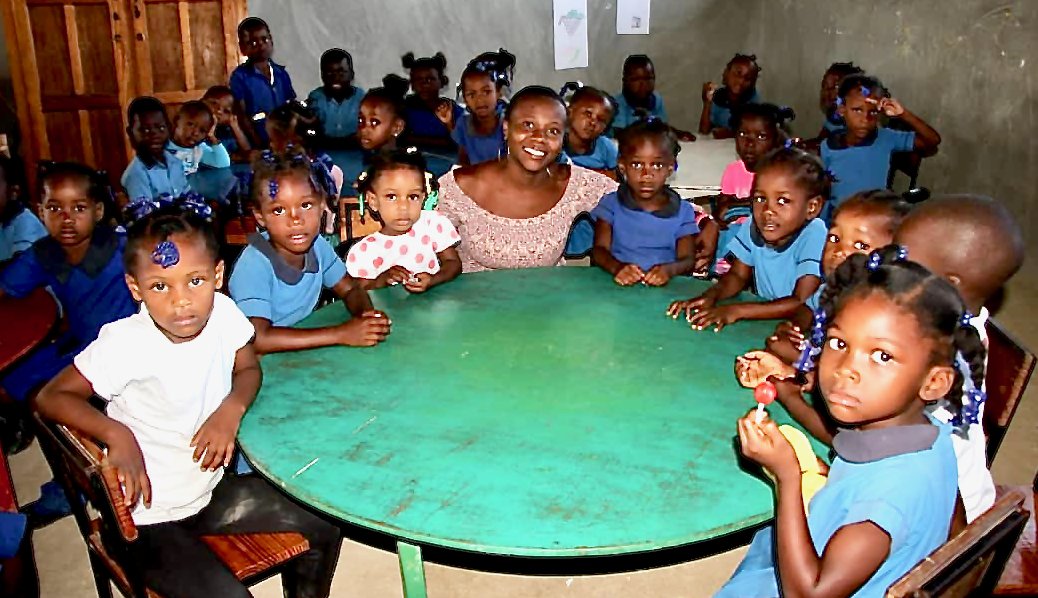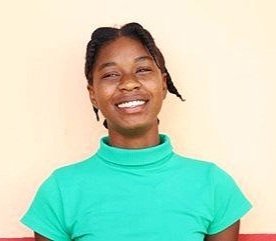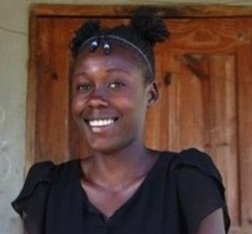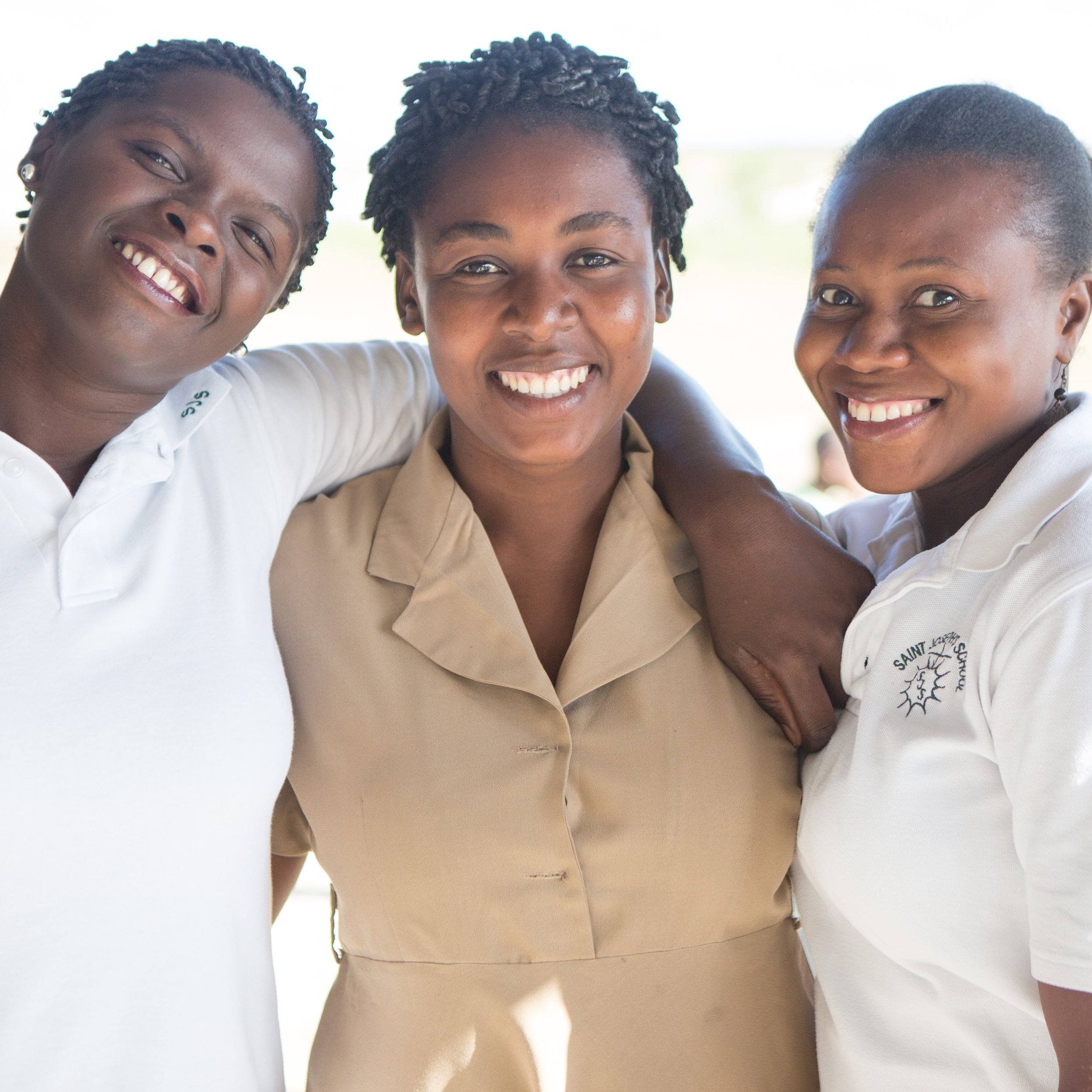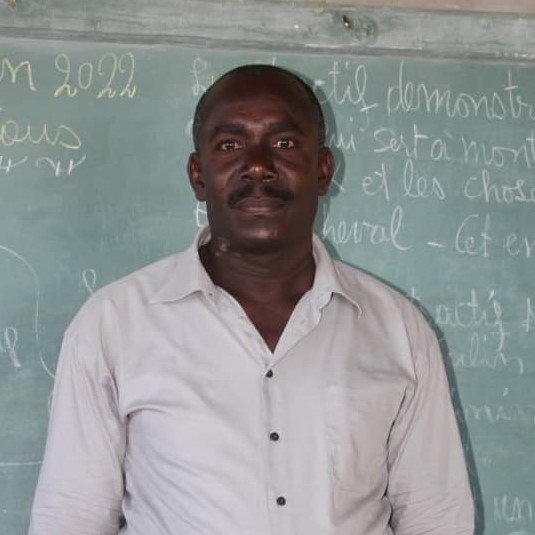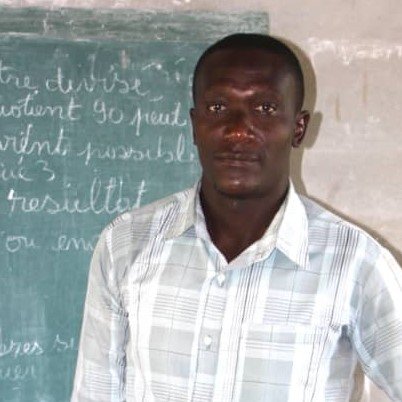Dejean Sainte Marie standing in front of the classroom where she and her two children sleep.
June 2025 brings contrast for the EcoVillage School community. The school term has ended and a new class of 9th graders are preparing to take the national high school entrance exam. Despite everyday poverty and the challenges of subsistence farming, our support for the school has produced another year of learning and advancement for more than 400 children.
It's a satisfying moment, except it is not. A threat looms just over the horizon. Two months ago gangs from Port-au-Prince attacked and now control Mirebalais, the largest city between the capitol and Hinche, home to most of the EcoVillage School teachers. The school is 5 miles from Hinche.
A new wave of refugees fleeing violence has moved into the EcoVillage community. Dejean Sainte Marie shares her story. “I’m from Mirebalais. I have two children. Today, I feel completely discouraged because the gangs took our home. They burned my house and took everything. I’m left empty-handed with no hope. The EcoVillage School gave us a classroom to sleep in. I spend the whole day under the trees in the schoolyard waiting for class to end so we can go back inside. I think all day about what to do. I was never idle—I used to run a small business. If I could borrow even a small amount of money, I would start a little business to feed my children. If it weren’t for the EcoVillage School helping us with a place to sleep and some food, we would be dead by now. How will we survive? I can’t feed my children except for what kind neighbors give us. Now I sleep in a classroom with nothing. Our situation is desperate.”
It’s a helpless feeling to watch the plight of Haiti and its people, which is exacerbated by our own nation’s pitiless policies. The Atlanta EcoVillage School Partnership is gearing up once again to raise the funds needed to operate the school for the 2025-26 term. We need your help and your support. We ask for your prayers for the families, the school, the community and our Haitian sisters and brothers.
Keep up-to-date with news from the school https://www.haitiecovillageschool.org/news
Caption:


